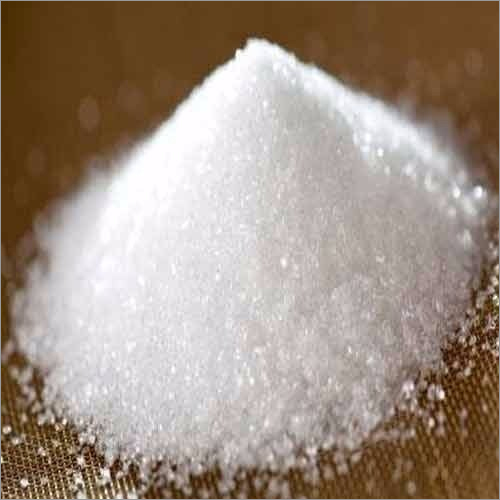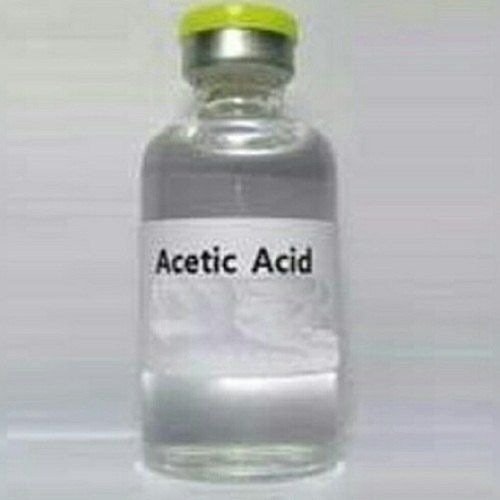साइट्रिक एसिड
20 आईएनआर/Kilograms
उत्पाद विवरण:
X
साइट्रिक एसिड मूल्य और मात्रा
- किलोग्राम/किलोग्राम
- 20000
- किलोग्राम/किलोग्राम
साइट्रिक एसिड व्यापार सूचना
- 10000 प्रति सप्ताह
- 1 दिन
उत्पाद वर्णन
Citric acid is a weak organic acid found naturally in citrus fruits such as lemons, limes, oranges, and grapefruits. It has a sour taste and is commonly used as a flavoring agent in food and beverages. Citric acid is also used as a preservative to inhibit bacterial growth and as an acidulant to adjust the acidity of food products.
Citric Acid Properties:
1. Acidity: Citric acid is a weak organic acid, meaning it partially dissociates in water to release hydrogen ions (H+). Its pH in aqueous solution is typically around 2.2, making it acidic. This acidity is utilized in food preservation, flavor enhancement, and adjusting the pH of various products.
2. Solubility: Citric acid is highly soluble in water. This property makes it easy to incorporate into aqueous solutions and facilitates its use in various applications, such as food and beverage production, pharmaceuticals, and cleaning agents.
3. Chelating Agent: Citric acid exhibits chelating properties, meaning it can bind to metal ions such as calcium and magnesium. This property is utilized in various industrial processes, including the removal of metal ions from water and as a cleaning agent to dissolve scale and rust.
4. Antioxidant: Citric acid can act as an antioxidant, helping to prevent oxidation and preserve the freshness of certain foods and beverages. It can inhibit the degradation of flavors, colors, and nutrients caused by exposure to oxygen.
5. Biodegradability: Citric acid is biodegradable, meaning it can be broken down by natural processes over time. This property makes it environmentally friendly and suitable for use in eco-friendly products, including biodegradable plastics and cleaning solutions.
6. Flavor Enhancer: Citric acid contributes a sour or tart taste to foods and beverages, making it a popular flavoring agent in the food industry. It enhances the flavor profile of various products, including soft drinks, candies, jams, and sauces.
7. Preservative: Due to its acidic nature, citric acid can inhibit the growth of microorganisms such as bacteria and mold. It is commonly used as a preservative in food and beverages to extend shelf life and maintain product quality.
Citric Acid Applications:
1. Food and Beverage Industry:
a. Flavor enhancer: Citric acid is widely used to add a sour or tart taste to food and beverages. It is found in soft drinks, fruit juices, candies, jams, sauces, and many other products.
b. Acidulant: Citric acid is used to adjust the acidity of food products, helping to control pH levels and preserve freshness.
c. Preservative: Due to its antimicrobial properties, citric acid is used as a preservative to extend the shelf life of foods and prevent spoilage.
d. Antioxidant: Citric acid acts as an antioxidant, helping to prevent oxidation and maintain the color, flavor, and nutritional quality of food products.
2. Pharmaceutical Industry:
a. Pharmaceutical formulations: Citric acid is used as an excipient in pharmaceutical formulations, including tablets, syrups, and effervescent preparations.
b. Acid-base balance: It is used in medications to adjust the pH of formulations or to aid in the solubility of certain drugs.
c. Anticoagulant: Citric acid is sometimes used as an anticoagulant in blood transfusion procedures.
3. Cosmetics and Personal Care Products:
a. Skin care: Citric acid is used in various skin care products, including creams, lotions, and peels, for its exfoliating and brightening properties.
b. Hair care: It is found in shampoos, conditioners, and hair treatments to adjust pH levels and remove mineral buildup.
c. Bath and body products: Citric acid is used in bath bombs and fizzing bath salts to create effervescence.
4. Cleaning Products:
a. Descaling agent: Citric acid is effective at removing limescale and mineral deposits from surfaces such as sinks, faucets, and appliances.
b. Disinfectant: It can inhibit the growth of bacteria and mold, making it a useful ingredient in household cleaners and disinfectants.
c. Laundry products: Citric acid is used in laundry detergents and fabric softeners to enhance cleaning and brighten fabrics.
5. Industrial Applications:
a. Metal cleaning and polishing: Citric acid is used in metal cleaning solutions to remove rust and scale from surfaces.
b. Water treatment: It serves as a chelating agent to remove metal ions from water, preventing scale formation in boilers and pipes.
c. Photography: Citric acid is used in the development of photographic films and papers.
Citric Acid FAQ:
Q. What is citric acid?
Ans: Citric acid is a weak organic acid found naturally in citrus fruits such as lemons, oranges, limes, and grapefruits. It has a sour taste and is commonly used as a flavoring agent, preservative, and acidulant in various industries.
Q. What are the uses of citric acid?
Ans: Citric acid has numerous applications, including:
- Flavoring agent in food and beverages
- Acidulant to adjust the acidity of food products
- Preservative to inhibit microbial growth and extend shelf life
- Cleaning agent to remove scale and rust
- Chelating agent in industrial processes
- Component in pharmaceuticals, cosmetics, and personal care products
Q. Is citric acid natural or synthetic?
Ans: Citric acid can be both natural and synthetic. It is naturally found in citrus fruits and can be extracted from them. However, due to high demand, most citric acid used commercially is produced through fermentation of sugars by certain species of mold.
Q. Is citric acid safe to consume?
Ans: Yes, citric acid is generally recognized as safe (GRAS) by the U.S. Food and Drug Administration (FDA) when used in accordance with good manufacturing practices. It is widely used in food and beverages as a flavoring and preservative agent.
Q. Can citric acid cause allergies or sensitivities?
Ans: Citric acid allergies are rare, but some individuals may experience sensitivity to citric acid, particularly in high concentrations or when used in skincare products. It's always advisable to consult with a healthcare professional if you suspect an allergy or sensitivity.
Q. Is citric acid environmentally friendly?
Ans: Citric acid is biodegradable and generally considered environmentally friendly. It is used in various eco-friendly products, including biodegradable plastics and cleaners.
Q. What are the side effects of consuming citric acid?
Ans: In normal food and beverage consumption, citric acid is generally safe. However, consuming large quantities may cause digestive discomfort such as diarrhea or stomach upset in some individuals.
Q. Can citric acid be used for cleaning?
Ans: Yes, citric acid is effective for cleaning purposes. It is commonly used as a descaler to remove limescale and mineral deposits from surfaces, as well as a disinfectant to inhibit microbial growth.
Q. How is citric acid produced commercially?
Ans: Commercial production of citric acid involves fermentation of sugars by certain strains of mold, typically Aspergillus niger. The resulting citric acid is then recovered and purified through various processes.
Tell us about your requirement

Price: Â
Quantity
Select Unit
- 50
- 100
- 200
- 250
- 500
- 1000+
Additional detail
मोबाइल number
Email




 जांच भेजें
जांच भेजें एसएमएस भेजें
एसएमएस भेजें मुझे निःशुल्क कॉल करें
मुझे निःशुल्क कॉल करें
